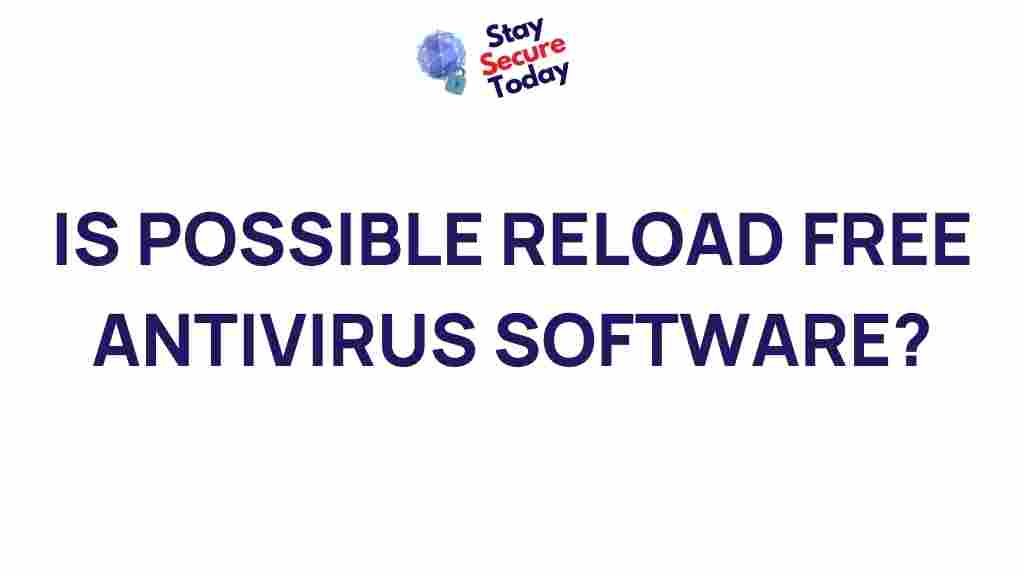Uncovering the Truth Behind Free Antivirus Software
With the rising number of cyber threats today, securing your devices has become more important than ever. However, many users are uncertain about the effectiveness of free antivirus software. Free antivirus tools can be tempting, especially when many paid options come with hefty price tags. But, is “free” really the best choice when it comes to protecting your computer from malware, ransomware, and other security risks? In this article, we’ll delve into the truth behind free antivirus software, exploring both the advantages and potential drawbacks, and help you make an informed decision.
What is Free Antivirus Software?
Free antivirus software is a basic security solution that provides protection against viruses, spyware, malware, and other types of cyber threats. Unlike premium versions, these programs are available at no cost, but they usually come with certain limitations in terms of features, updates, and customer support. Despite these restrictions, they offer a level of protection that can be sufficient for light users.
Understanding the Benefits of Free Antivirus
Free antivirus software has gained significant popularity because of its zero-cost entry point. While it may not have all the bells and whistles of a paid solution, there are some notable benefits to using free antivirus programs. Here are some reasons why free antivirus might be worth considering:
- No Cost: As the name suggests, free antivirus programs don’t cost a penny, making them an appealing choice for those on a budget or people who don’t want to commit to a subscription.
- Basic Protection: Free antivirus software provides essential protection, such as scanning for malware, viruses, and other threats that can compromise your device’s security.
- Ease of Use: Most free antivirus tools come with simple, user-friendly interfaces that make them easy to install and navigate, even for beginners.
- Lightweight: Many free antivirus solutions are designed to be lightweight and non-intrusive, meaning they don’t consume a lot of system resources, which helps maintain device performance.
Popular Free Antivirus Programs
There are several free antivirus software options available today. Some of the most widely recommended ones include:
- Avast Free Antivirus – Known for its strong malware detection and real-time protection.
- AVG Free Antivirus – Offers robust protection against viruses and other online threats.
- Bitdefender Antivirus Free – Offers excellent protection with minimal system impact.
The Limitations of Free Antivirus Software
While free antivirus programs offer certain benefits, they also come with notable limitations that users should be aware of. Understanding these restrictions can help you make an informed choice about whether a free solution is enough for your needs, or if you might require additional protection.
Limited Features
Free antivirus software typically offers basic protection, but it lacks the advanced features included in premium versions. These advanced features may include:
- Firewall Protection: Premium versions often come with a built-in firewall to monitor inbound and outbound traffic, preventing unauthorized access.
- Real-Time Protection: Some free antivirus programs only offer manual scanning or scheduled scans, while real-time protection is a common feature in paid versions.
- Ransomware Protection: Ransomware is a growing threat, and premium antivirus solutions often include additional layers of protection specifically designed to counteract ransomware attacks.
- Privacy Protection: Advanced tools such as VPNs, password managers, and web protection are often reserved for paid versions of antivirus software.
Frequent Ads and Upselling
Another common drawback of free antivirus software is the presence of frequent pop-up ads or constant upselling attempts. Many free antivirus programs rely on these tactics to encourage users to upgrade to the paid version. While some users find these ads manageable, others find them intrusive and annoying.
Less Frequent Updates
Free antivirus software may not receive updates as frequently as their premium counterparts. Updates are critical in the world of cybersecurity because they help antivirus programs stay ahead of new threats. Some free antivirus solutions may provide updates on a less regular basis or require manual intervention to initiate updates.
Is Free Antivirus Enough for Your Needs?
The question of whether free antivirus software is sufficient depends on your individual usage and needs. For light users who primarily browse the web, check emails, and engage in non-sensitive activities, free antivirus programs might be all they need. However, if you frequently download files, use your devices for online banking, or store sensitive personal data, you may need the additional layers of security that a paid antivirus solution can provide.
Step-by-Step Guide: Choosing the Right Antivirus Software for You
Choosing the right antivirus software can be a challenging decision, especially with so many options available. Here’s a step-by-step guide to help you make the best choice:
- Assess Your Needs: Consider your usage habits. Are you a casual user, or do you rely on your devices for sensitive tasks like online shopping or banking? If so, additional protection may be necessary.
- Evaluate Features: Compare the features of free and paid antivirus options. Look for antivirus solutions that offer the level of protection you require, such as firewall protection, malware removal, and privacy tools.
- Test Multiple Options: Many antivirus programs offer free trials or free versions. Take advantage of these to test which software fits your needs and performs well on your system.
- Consider Customer Support: While free antivirus software may not come with extensive customer
This article is in the category News and created by StaySecureToday Team
